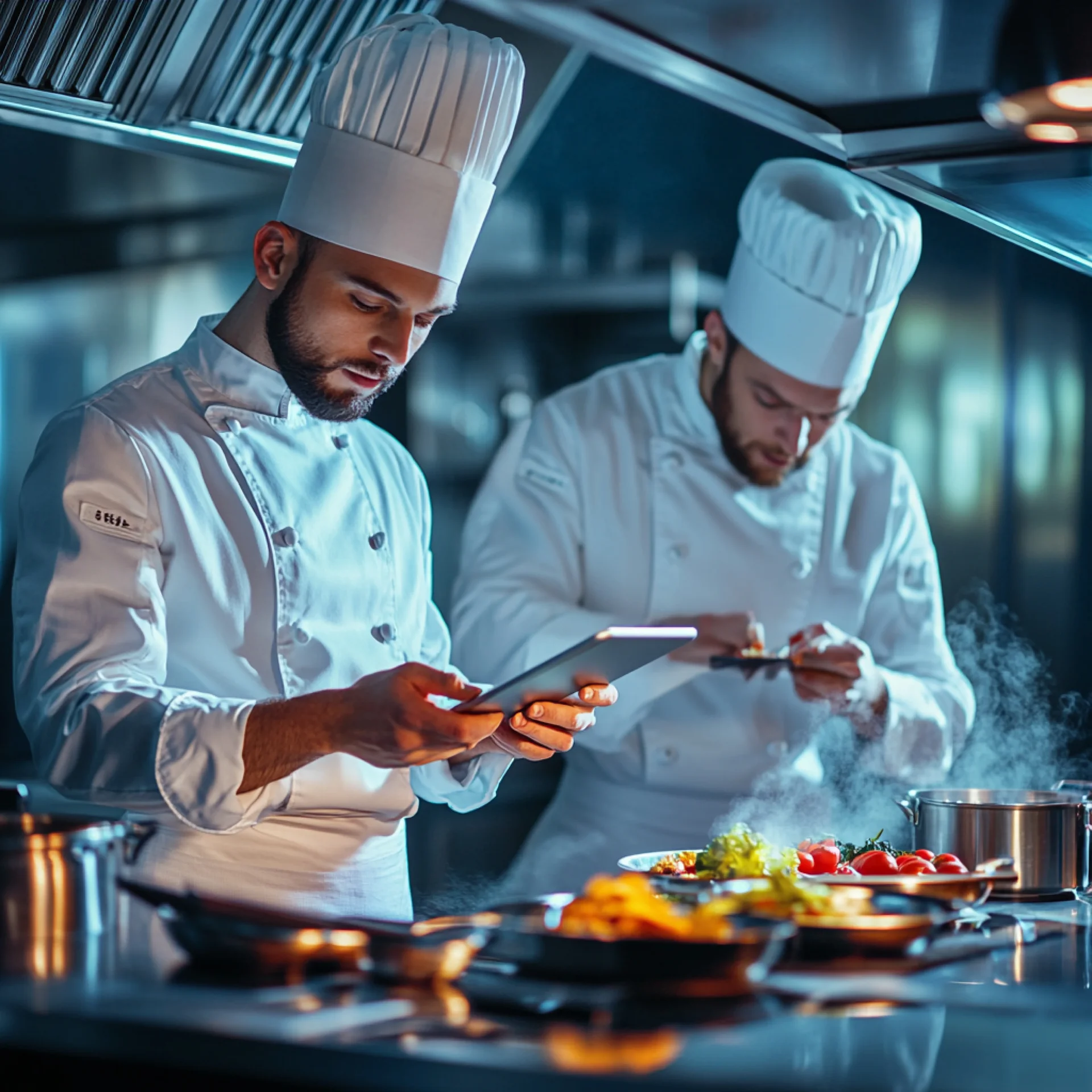
Build processes for resilience & performance
Transform your operational inefficiency, wastage and manual processes.
Build process resilience and agility to improve your response to customer, staff and regulatory changes.
Book a demo
2000+ brands deployed in 50+ countries improve culture with Mapal
Solutions to your top people challenges

Enforce standard operating procedures
Automate your standard operating procedures (SOPs) design and tracking. Maintain consistency and quality control across multiple sites.
Rapidly deploy and update SOPs across your organisations.
Learn more →
Centralised purchasing and food ordering
Bring all your supplier management together to simplify order tracking, inventory management, and communication.
Reduce costs and waste with digitised demand forecasting, stock prediction and procurement processes.
Learn more →


Data-fed interventions
Reduce waste, manage allergen risks, and maximise profitability through optimised pricing and streamlined menu engineering.
Leverage real-time data to gain visibility into asset enabling better decision-making.
Learn more →
Connecting hospitality’s most popular tools
Take your tech from siloed to successful with an ever-expanding selection of integrations and partnerships
Complexity, simplified
Each pathway leads to better hospitality operations, bringing together the entirety of your back of house tech stack into one, easy to implement suite of solutions.
Workforce Suite
Built for shift management, staffing, event planning, site management and contract catering leaders
Culture suite
Built for learning and development, staff engagement, compliance, standard assurance and HR leaders
FAQs
A food inventory management software is a system that tracks all stock that comes into your restaurant, what is used in the restaurant and what’s left over. Good kitchen inventory management software will help you identify where you may be losing money and better control your costs.
It’s specially designed software for chefs, restaurant managers and kitchen team that helps you digitally manage the processes of ordering, storing, using and selling your food stock. You will have all your supplier data and prices in one place, which enables you to compare quickly and easily and get better deals at the time of ordering. Some inventory management system like Easilys f&b also include features such as menu engineering and food waste management
Kitchen inventory management systems are a game-changer for business owners, restaurant managers, chefs and kitchen teams alike. This software is crucial to running a profitable multi-site food service business. The benefits are numerous, but here are just some of the ways these tools help restaurant and catering organisations:
- Greater accuracy
- Reduces costs
- Saves time
- Improves business planning
- Easier auditing
- Improves customer service and satisfaction
- Keep track of your stock in real time
- Track what’s selling and what’s not
- Measure and monitor food waste
- Maintain standards across all sites
- Better supplier relationships
- Better value in your purchasing activity
- Supply chain traceability
- More efficient menu planning
- Portion control to avoid waste and improve profitability
- Automatic stock prediction helps avoid food waste and save money
- Connect to payment apps for invoicing and purchase orders
- Connect to POS to link goods sold to next order
Choosing software can be a bewildering experience, but there are some important things to look for when comparing one product to another:
Specialist in the restaurant industry
This is vital, your software must be able to handle the needs of a busy kitchen with frequent stock movements of fresh produce, and potentially numerous food suppliers.
Versatile and customisable
A tool that can be adapted to the needs of our business and can evolve as you change.
Fulfils your requirements
Make sure from the outset that your chosen tool will do what your business needs it to do.
Integration
Ensure that the software can connect to the other solutions you use.
Easy to use
As your teams are made up of people with different technical capabilities, make sure it’s user- friendly enough for everyone working in the kitchen
Customer support
A team that’s well-trained and readily available to support you with any issues that arise is vital, as well as a quick turnaround for problem-solving
Adapts to your budget
Check pricing plans to see which options suit what your business really needs.
As we’ve already touched upon, the range of different regulations we must meet as hospitality operators is quite extensive, but we’ll outline some of the main areas here:
Alcohol licensing
In many countries, including the UK, premises that sell alcohol must have a licence to do so. What’s more, they must also have always at least one employee on duty who is a personal licence holder.
Food safety
Businesses of all kinds must make sure they provide safe conditions for their teams and their guests. As hospitality is largely based on food and drink, food safety in hospitality, it's vital to implement a food safety management system to avoid contamination, food poisoning or allergic reactions among guests. Faulty temperatures on fridges, cold rooms or display cabinets can often result in food poisoning, or food waste, so having robust operational checks in place is critical to avoid undesirable incidents, fines or damage to your business reputation. Paper-based procedures systems often fall short and are excessively time-consuming when you’re short-staffed, which is why multi-site restaurant brands are increasingly turning to digital compliance management systems
GDRP and data
We process a huge amount of data in our daily transactions with customers, suppliers and also, employee payments. So, it’s essential to comply with data protection laws with every order, payment and invoice. This also applies to our marketing efforts, for example, when we request personal data to promote our goods and services. Read more about data compliance in restaurants here.
Consumer protection and trade descriptions
Like all businesses, hospitality operators must not mislead customers when describing their goods or services, including advertising, menu pricing or labelling information. So, when a restaurant advertises a specific dish, it must ensure that it is correctly described, that the photo matches the real thing, the price is correct, and that the customer will receive the same standards of food and service across all the company’s restaurants. This isn’t an easy thing to guarantee, so digital solutions are much more efficient in helping you achieve this to protect your business from legal action, your brand reputation and gain customer loyalty.
Read our complete guide for more in-depth information and guidance on all the different elements in hospitality compliance for multi-site businesses.
It helps you stay on top of maintenance, repairs, compliance checks, and asset tracking across one site or many so nothing falls through the cracks.
Click here to find out more.
Operational Analytics gives you real-time visibility into key metrics like sales, labour, and productivity helping you spot trends, compare performance, and drive better decisions.
Click here to find out more.
Trusted by the best and biggest brands in hospitality
Hospitality software for your business stage
Start with the capabilities you need right now, grow into a full back-of-house solution when it suits.
Book a demo
